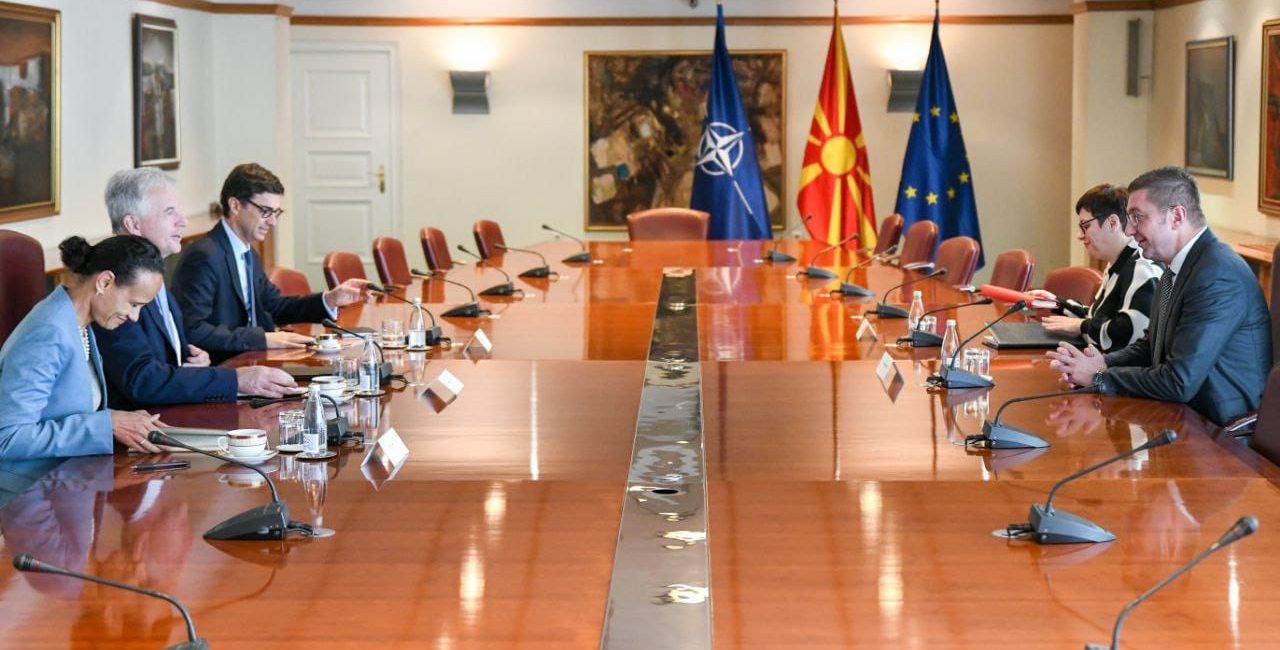1st October 2024, Skopje – Reforms and accelerated economic growth were main topic of discussion at the meetings held at both the Government and the Ministry of Finance with the International Monetary Fund.
Fiscal policy the new Government conducts, aimed at strengthening and maintaining macroeconomic stability in the long run and supporting economic activity, through gradual fiscal consolidation, improved public finance management and maintaining high level of capital expenditures, were discussed at the meeting with Alfred Kammer, Director of the European Department at the IMF, Annette Kyobe, IMF Mission Chief, and Sebastian Sossa, Regional Resident Representative for Western Balkan and Chief of IMF Office in Skopje.
“Key elements medium-term fiscal policy is based on are disciplined fiscal approach, reduction of informal economy, increased collection of budget revenues and overall fiscal consolidation, as outlined under the adopted 2024 Supplementary Budget, by making savings of around Denar 20 billion aimed at settlement of liabilities and arrears,” Minister of Finance said.
She also added that in addition to the commitment to fiscal consolidation and budget savings, significant focus will be placed on underpinning the economy, in particular by investing in infrastructure projects, redesigning the structure of public finances by maintaining high level of capital expenditures and strengthening both transparency and accountability.
“The most important document in the country – 2025 Budget is in its final stage of preparation at the Ministry of Finance, and it is to be soon sent to the Government for adoption. What we focus on is fiscal consolidation and gradual reduction of budget deficit, thereby also achieving high level of capital expenditures. Activities have already been undertaken for preparation of 2025 – 2029 Medium-Term Fiscal Strategy. Fiscal Policy Statement has been introduced for the first time, containing guidelines for the fiscal strategy for the period by 2028,” the Minister said.
Strong commitment to fight against informal economy and more efficient collection of budget revenues was highlighted during the meeting. By coping with informal economy, in addition to increased revenues, level playing field will be created for the companies and their boosted competitiveness, thus contributing to accelerated economic activity. Inflation is expected to stabilize, with the economy recovering and growing.
To that end, as the Minister underlined, activities have already been undertaken for introducing e-invoice. This is one of the first planned activities aimed at carrying out a more efficient tax audit and saving resources in the tax administration.
The Minister also emphasized the crucial importance of the cooperation with the IFIs, which will continue through implementation of many projects. As she pointed out, Loan Agreement with Hungarian Export Import Bank is expected to be signed soon, under which funds will be provided for budget support, which are to be employed in local development projects and support to businesses.
















